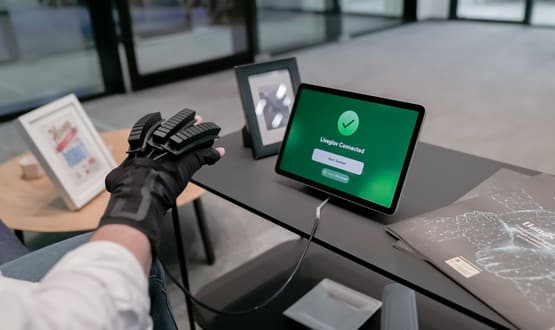Robot supports high dependency patients
- 24 August 2012

A telepresence robot that allows clinicians to remotely listen to a patient’s heart and lungs is in use at a Northern Ireland health trust.
A £500,000 high dependency unit at Daisy Hill Hospital in County Down was opened this month and is the first in the UK to use the robot to give patients access to consultant support.
The robot, provided by InTouch Health,enables intensive care specialists from Craigavon Area Hospital in County Armagh to remotely assess patients in real time.
A stethoscope at the back of the robot means it can transmit heart and breath sounds from the patient.
Craigavon consultant anaesthetist and intensivist, Dr Charles McAllister, said Daisy Hill does not have the critical mass to require an intensivist on-site.
But by using the robot, he can assess patients in the HDU remotely and provide advice about whether they need to be transferred to intensive care, or another specialist unit, or remain where they are.
Dr McAllister uses a joy stick to move the robot around and operate a camera that can zoom-in on anything he wants to see, such as a monitor.
A screen at the patient’s end shows his face and a loud speaker allows him to speak to the patient or a staff member.
“The amount of information we can gather from seeing the patient – from seeing their monitors, just looking at their general state, adding information from radiology and bloods, and talking to any of the staff there – gives you a pretty good feel for the direction the patient is going in,” he explained.
Patients have also reacted well to the new technology. “We expected resistance from the patients, but they have taken to it very well,” he added.
Dr McAllister logs-in every day to see if any patients need to be assessed and more frequently if needed.
“By having the telepresence robot we can see any patients in the high dependency unit or other wards or in the emergency department and give advice and input and suggestions,” he said.
This can avoid patients being sent to the ICU inappropriately. Dr McAllister said non-specialist staff tended to be more cautious when assessing patients so might admit them to the ICU earlier than necessary.
In contrast, they might not realise how sick a patient is and transfer them too late.
“If you get people early in their course of sickness it shortens their stay in ICU and I have no doubt it enables patients to have a higher chance of survival,” he said.
Intensivists now also have the information needed to decide that there is nothing that can be done for a patient in ICU and they should stay where they are.
Health minister Edwin Poots, who opened the new unit, said the robot is at the “cutting edge of innovation in our health service and makes the best use of health resources to the benefit of patients.”




